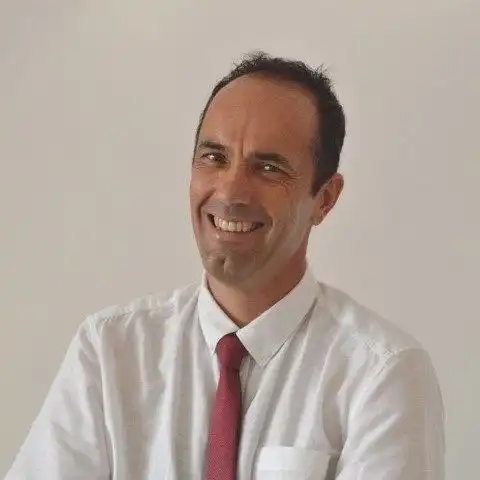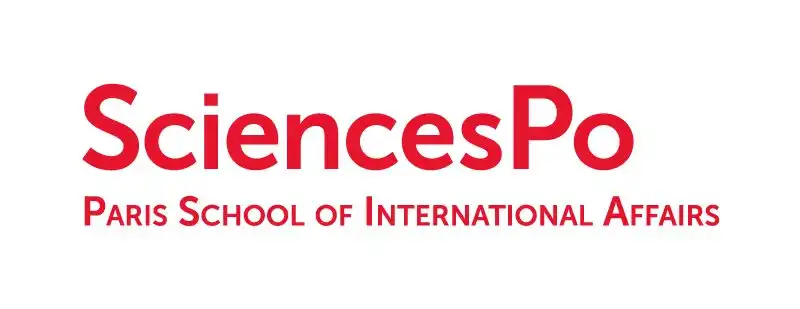Home>UNOC Interview Series - Olivier Pringault, Research Director at the Institute for Sustainable Development (IRD)
19.06.2025
UNOC Interview Series - Olivier Pringault, Research Director at the Institute for Sustainable Development (IRD)
With the 2025 United Nations Oceans Conference in June, the intersection of ocean policies, water management, technology, and geopolitical stability is proving to be more central than ever.
In the context of the multilateral gathering in Nice, the SciencesPo PSIA Tech and Global Affairs Innovation Hub met with experts from academia and civil society for a series of interviews to shed light on these topics that are shaping the conference conversations.
Olivier Pringault, Research Director at the French National Research Institute for Sustainable Development (IRD), is a leading expert in marine biogeochemistry, with a focus on coastal ecosystems and international scientific cooperation. In this interview for the Tech and Global Affairs Innovation Hub, he shares his perspective on how cutting-edge ocean research, data-sharing, and collaboration with local partners can drive more equitable, sustainable, and peaceful approaches to managing marine resources—especially in regions most vulnerable to climate change and ecological disruption.

Your research focuses on the impacts of contamination on marine life, especially in the Mediterranean sea. Can you explain to a non-expert audience the effects of human activities you observe on marine microbial life in your work?
My work focuses on the study of anthropic contaminations in marine ecosystems, especially off the coast of Tunisia, and their negative effects on phytoplankton and microbial compartment. “contamination” refers to the abnormal concentration of a compound–which can be mineral / metallic or organic / chemical–in regard to the baseline historically observed in that ecosystem or in similar areas.
There are many different types of contamination. Some are natural, but an increasing number are the consequence of human activities (fishing, sea transport, exploitation of seabed resources, wastewater management, spillage of chemicals…). Once a contamination is documented, the second step of my research is to find evidence, through observations, collections and experiments in situ and in the lab, that the contamination is inducing a negative effect on sea life.
In this case, we can start speaking of pollution. Pollution can have substantial effects on microbial life and phytoplankton, since these microorganisms are very sensitive to alterations in their environment due to their small size and since they really are at the bottom of the aquatic food chain. On the other hand, these microorganisms also play an important role in maintaining the ecological balance of marine environments by degrading some chemical and organic components, thus contributing to remediate contamination, this is bioremediation. They do it for many organic compounds naturally present in the environment, heavily contributing, for instance, to the absorption and fixation of 30% of our carbon dioxide emissions. However, they sometimes lack the enzymes that would let them degrade artificial chemical compounds we engineer, produce, and release in oceans like pesticides or plastic compounds, at an accelerated pace.
Given your expertise in marine biogeochemistry, what role do you believe ocean science can play in shaping policy—and especially international cooperation frameworks like those promoted by the UN Oceans Conference—to prevent marine resource conflicts and promote sustainable development?
Ocean science is essential to inform policymakers during and before these international meetings. Historically, scientists were mostly expected to provide an objective, fact-based diagnosis of the problems that need to be answered, their scale, and their impacts. While this diagnosis is continuously updated, the urgent need to better protect marine ecosystems it reveals is now well-established. But international governance is still lagging behind.
That is why, in recent years, the scientific community started taking on a greater responsibility in prioritizing subjects and proposing implementable solutions to accelerate governance and get more results. For instance, regarding chemical pollution in the sea, this means not only providing an up to date assessment of contamination and its effects, but also proposing, upstream, a moratorium on plastic production, usage, and disposal, and downstream, new solutions to reduce concentrations and support degradation and fixation of pollutants.
This greater ambition is reflected in the organization of the One Ocean Science Congress, also happening in Nice, coordinated by the CNRS and IFREMER, and to which the IRD is associated. This global Summit is a crucial effort gathering scientists from all around the globe to equip decision makers with scientific expertise, factual insights and state of the art proposals regarding the most important topics that will be tackled a week later during UNOC.
Can you share specific examples from your work where research has informed public policy or contributed to the adoption of sustainable management practices in marine ecosystems whose health is challenged by human technologies? How did they impact geopolitical stability down the line?
Our work in Tunisia has proven essential to evaluate anthropogenic contamination and its effects on sea life in the Gulf of Tunis, the Bay of Bizerte and the Gulf of Gabes. This research, carried out in partnership with Tunisian institutions through an international joint laboratory (IJL) co-funded by IRD and the Tunisian ministry of research. This IJL inspired several public projects in Tunisia. For instance, Tunisian institutions are now working on plans to adapt organic waste management in the Bay of Bizerte (https://ufmsecretariat.org/fr/project/lake-bizerte/). In particular, we are contributing to plans to upgrade the existing facilities that collect organic waste from large markets in Tunis. We are supporting the R&D to use locally collected bacteria to degrade waste, reduce contamination, and generate biohydrogen. Since these bacteria thrive in saltwater, such an innovative implementation limits the facility’s freshwater consumption which is crucial in the South Mediterranean basin. We are also teaming up with the French Alternative Energies and Atomic Energy Commission (CEA) to harness the produced biohydrogen for decarbonated electricity generation, matching local needs and infrastructures.
Another example that comes to mind is the one of my colleagues, Emilie Strady and her team. They have tied long term research collaborations in Vietnam, building networks with national stakeholders to establish the extent of plastic pollution in the country and its coastline. That work has paid off: at the end of 2019 the Prime Minister signed the National Action Plan for Management of Marine Plastic Litter which set ambitious targets to reduce plastic waste by 2030. A considerable success considering the prominence of the plastic industry in Vietnam’s economy, which also ranks as one of the countries with the largest amount of mismanaged plastic waste in the world, with more than 2 million tons per year!
What are the key barriers to scaling up research-driven marine solutions from pilot studies to transnational strategies to, and how can science diplomacy help ensure equitable access to ocean resources and environmental data?
Once again, while the evaluation of the health of our marine ecosystems is still and should always be a continuous research field, the general diagnosis is pretty clear and our challenge is really to fuel change at the service of conservation and sustainable practices. In that regard, the IRD adopted a strategy to develop an end-to-end expertise in sustainabilities sciences, from the identification and measurement of problems to the co-design of achievable, efficient, and fact-based solutions with our partners of the global South.
This can only be achieved through the elaboration of international partnerships, which are both rooted in and fostering complex multi-stakeholder networks involving scientists, local populations, industries, NGOs, and policymakers. Building these partnerships and networks takes time and requires a truly interdisciplinary approach to take into account socio-economic factors that are at play for each problem we document. As an example, defining protected marine areas must answer both the ecological goals set with the authorities and the needs of the local users, often the best stewards for this kind of policy, when it comes to fishing, tourism, recreational, and cultural activities…
Let’s say you observe a similar issue in two different countries, you cannot just adopt a “one-size-fit-all” approach. On average, a French person consumes roughly 30kg of fish products per year. In Gabon, that figure is closer to 40kg per inhabitant. While France is less dependent on fishing and has a more diversified food system that could withstand it, establishing a strict protection limiting access to this resource without thinking over the alternatives protein sources for the Gabonese population is bound to fail. Which is why we need an interdisciplinary, multisectorial approach grounded in types of scientific collaborations that allow international cooperation accounting for local specificities and global inequalities.
You have yourself researched and taught in institutions based in France, New Caledonia, Fidji, and Tunisia. Can you explain how the innovative approach you mention translates into new forms of international scientific cooperation?
Ocean research, and sustainability science in general, must help us not just “think global, act local”, a very common environmental motto, but also to “think local to act global”. This can only be done when we work together to equip researchers, policymakers, and even communities stewarding ecosystems located around the globe with the right resources to act locally and to coordinate successful actions at the transnational level.
The IRD works with a lot of countries in the intertropical zone. That includes a lot of countries listed by the UN as “Least Developed Countries” (LDC), which often have limited financial and technical resources on their own to support the local research networks required to foster evidence-based policymaking. That is why the IRD multiplies cooperation structures, initially on a very specific issue with a limited number of partners, to build local capacity, put research equipment in common, share methodologies, experiment locally and continuously mutualize best practices. These structures then can scale into International Joint Laboratories (IJL), then International Research Networks (IRN).
Another example that comes to mind is a project funded by the EU in which we collaborate with Tunisian colleagues to train professionals and adapt an offshore oil platform to limit the pollution it generates and ensure its compliance to higher environmental standards. Like the other projects I mentioned before, building local capacity and sharing best practices, including between Global South practitioners, really empowers not just other researchers, but also local communities and policymakers. It really accelerates the identification of efficient solutions that are replicable–once adapted to local contexts– around the world. It also allows us to really learn from our peers without falling into the trap of “giving lessons”. There is so much value in enabling more inclusive, equitable, and constructive partnerships around a common ambition to achieve sustainability.
Got a question? Interested to be involved in the Hub?
If you wish to contact the team, feel free to email us at innovationhub.psia@sciencespo.fr
